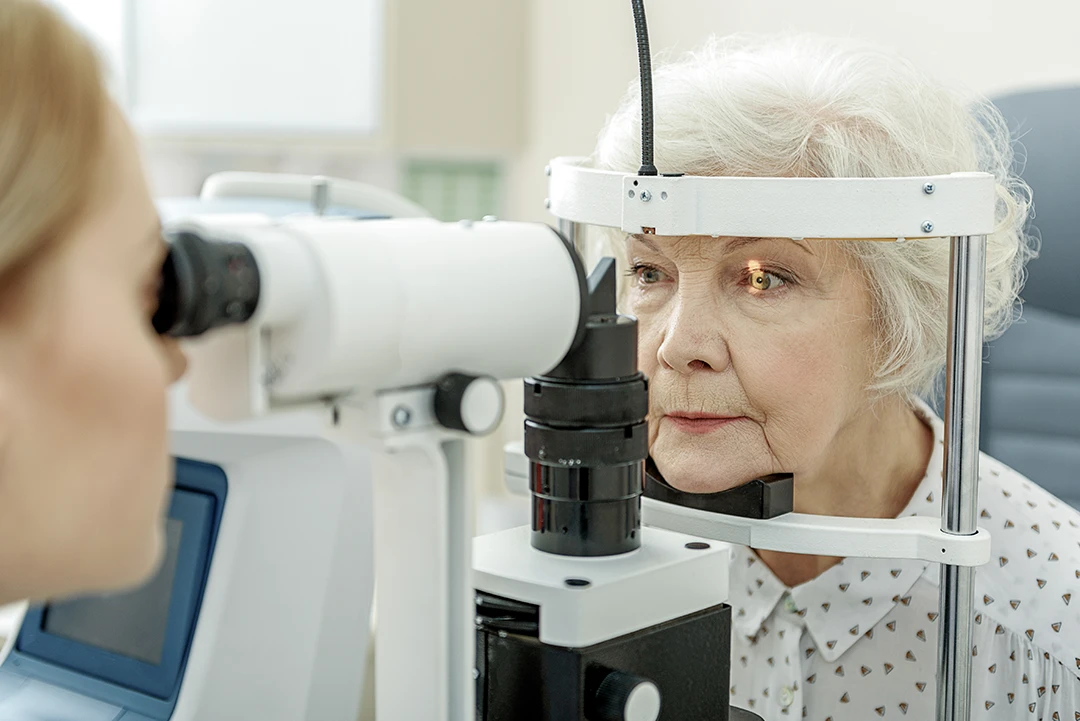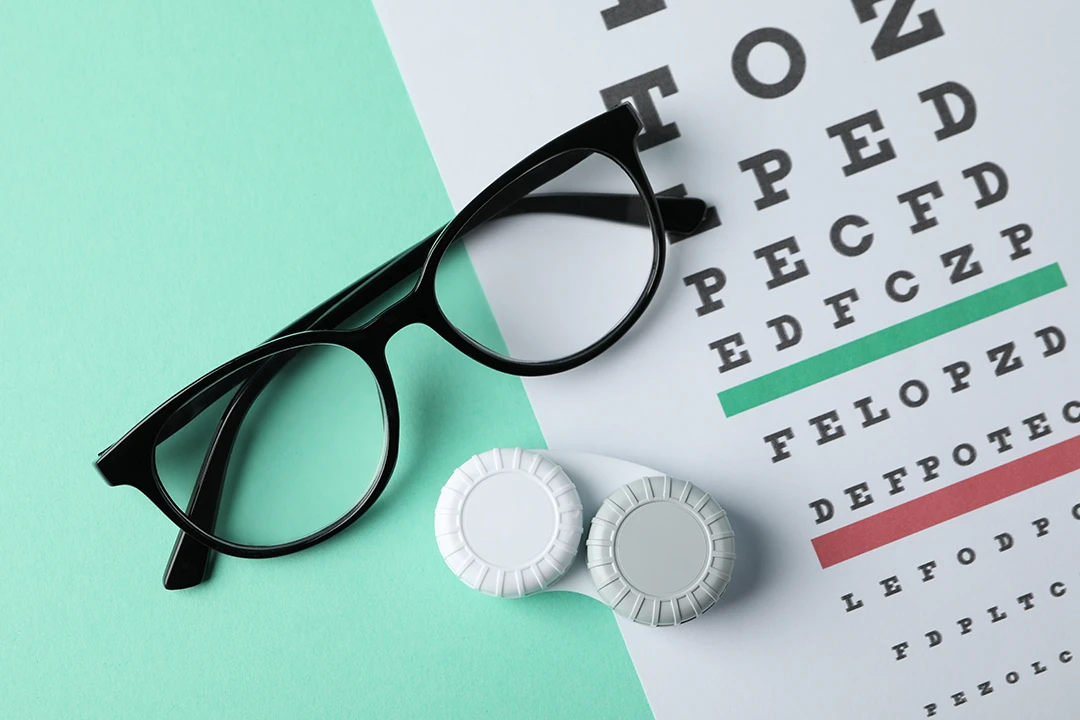 You know that feeling when you put on a fresh pair of glasses after struggling with blurry vision for way too long? Suddenly, the world just looks more vibrant, more in focus. Now imagine dealing with vision problems year after year as you age. Little by little, daily activities you once took for granted become more challenging until one day, you’re really feeling the impacts of vision loss on your independence and quality of life.
You know that feeling when you put on a fresh pair of glasses after struggling with blurry vision for way too long? Suddenly, the world just looks more vibrant, more in focus. Now imagine dealing with vision problems year after year as you age. Little by little, daily activities you once took for granted become more challenging until one day, you’re really feeling the impacts of vision loss on your independence and quality of life.
That’s the reality many seniors face as their eyes go through natural age-related changes over the decades. And it’s not just struggling to read the tiny font on medication bottles or struggling to see street signs. Issues like cataracts, glaucoma, and macular degeneration can seriously disrupt the golden years if they go undetected and unmanaged for too long.
The good news? Staying on top of regular comprehensive eye exams as your loved ones hit those later life milestones gives them a powerful advantage. These appointments act like visionary bodyguards, catching any problems early before they get out of hand. From there, your loved one has more options for managing the issue – whether it’s a new eyeglasses prescription, dietary tweaks, or proper treatment.
In this article, you’ll learn the importance of routine eye exams for seniors, how they can prevent vision loss, and the steps you can take to support them. Read on to discover how proactive senior eye care can improve your loved one’s health!
Importance Of Regular Eye Exams For Seniors
Eye exams are essential for everyone, more so for seniors. Here is why your loved one should get a complete eye exam for seniors:
Early Detection Of Eye Diseases
Regular eye exams help spot if your senior has an eye disease, such as cataracts, glaucoma, dry eye syndrome, or macular degeneration, early. For instance, your loved one may start having trouble reading small print or seeing clearly at night due to cataracts clouding their lenses.
Comprehensive eye exams can detect these changes early before vision loss progresses. Getting ahead of such problems helps protect your loved one’s precious eyesight and independence as they navigate their golden years.
Management Of Chronic Conditions
As adults age, managing chronic conditions is essential for ensuring overall body and eye health. Take diabetes, for example – it can increase the risk of diabetic retinopathy, where tiny blood vessels in the eye are damaged.
Neglecting this issue can lead to vision loss over time. That’s why a routine comprehensive eye exam is crucial, more so for seniors dealing with persistent issues like high blood pressure or diabetes.
Maintaining Quality Of Life
Vision problems make everyday tasks much more challenging for seniors. Simple things like reading the mail, driving to the store, or recognizing people become major challenges. As such, keeping up with routine eye exams is crucial if you want your loved one to maintain their independence.
The eye doctor can catch any vision changes early before they seriously disrupt their daily life and activities. So don’t wait until blurry vision forces your loved one to give up their car keys or struggle to read recipes. Prioritize those eye appointments to stay active and engaged in the things you enjoy most.
Updating Prescriptions
Vision changes with age can require different eyeglasses or contact lenses prescriptions. Keeping up with routine senior eye exams ensures your loved one has the right vision correction to see clearly and go about your daily routine safely.
So, make sure your loved one stays on top of that comprehensive eye exam to get the vision correction they need for safe, independent living. Seeing life’s moments with loved ones is priceless!
What To Expect During A Senior Eye Exam
Knowing what to expect in the eye exam can help caregivers and older adults prepare and make the most of the appointment. Here are the common tests and procedures involved:
Visual Acuity Test
 During the visual acuity test, the doctor requests your loved one to read letters off an eye chart from different distances. This allows the doctor to check whether your loved one requires glasses or contacts to help them see more clearly.
During the visual acuity test, the doctor requests your loved one to read letters off an eye chart from different distances. This allows the doctor to check whether your loved one requires glasses or contacts to help them see more clearly.
Refraction Assessment
The senior eye care professional uses a special lens-switching device to examine your loved one’s eye condition. By trying out different lens strengths, they can measure how light bends to pinpoint the perfect lens prescription. It’s a quick and comfortable process for dialing in optimal eyesight.
Slit Lamp Examination
In this exam, the doctor uses a special microscope to inspect your loved one’s eyes with utmost precision. They’ll closely examine the cornea, iris, and lens for any signs of conditions like cataracts or corneal issues.
Retinal Examination
Retinal examination, also called ophthalmoscopy, allows your eye doctor to detect any concerning conditions like macular degeneration, diabetic retinopathy, or even retinal detachment. It’s a window into eye health’s innermost depths, ensuring the doctor can examine every corner thoroughly.
Tonometry
During tonometry, the optometrist checks the pressure inside your loved one’s eyes. This is crucial for detecting glaucoma, an eye condition where excessive inner eye pressure can gradually damage the optic nerve over time if left unmanaged. With either a gentle puff of air or by lightly applying a special device, they can accurately measure this intraocular pressure.
Peripheral Vision Test
While your loved one focuses straight ahead, the doctor will ask them to describe objects appearing in their side vision during this peripheral vision test. These vision gaps could hint at conditions like glaucoma or neurological issues impacting sight’s outer boundaries.
Preventive Measures And Lifestyle Adjustments
In addition to regular senior eye exams, there are a few preventive things caregivers can do to help seniors maintain healthy eyes:
Healthy Diet
Encourage your loved one to feast on nature’s vibrant offerings. Spinach, kale, and crunchy carrots pack a nutritious punch, while omega-3-rich fish like salmon are excellent foods for healthy eyes. These wholesome, eye-friendly gems provide a buffet of protective nutrients for maintaining radiant vision. It’s a delicious way to treat your loved one’s eyes.
Regular Exercise
Regular physical activities promote robust blood flow, delivering a fresh supply of nutrients and oxygen to nourish those precious peepers. Plus, it helps manage diabetes or hypertension, minimizing vision risks often tied to these chronic conditions. Simple exercises like a morning stroll or stretching session can work wonders for maintaining bright, youthful eyes.
Sun Protection
Those brilliant sunny days can take a toll on aging eyes if unprotected. Encourage your loved one to rock that stylish pair of sunglasses whenever they step outside. The right shades will block harsh ultraviolet rays that can contribute to cataracts and other vision issues down the road. It’s a simple yet vital step for safeguarding long-term eye health against solar strain.
Adequate Hydration
As adults age, their bodies can struggle to retain moisture, leaving eyes feeling dry and irritated. Encourage your loved one to take water throughout the day – it’s a simple solution for rehydrating their eyes. Proper hydration replenishes fluids lost over time, preventing scratchy, uncomfortable dryness. Just a few extra gulps can work wonders for maintaining bright, comfy vision well into the golden years.
Frequency Of Eye Exams For Seniors
For seniors, keeping up with routine eye exams is crucial for maintaining healthy vision. Most optometrists recommend a yearly eye exam for adults over 60 years, even without any existing eye problems.
However, people with conditions like diabetes should get comprehensive annual eye exams regardless of age. For older adults already managing eye diseases or problems, more frequent exams may be necessary to monitor progression closely.
Conclusion
Safeguarding healthy vision should be a top priority for seniors who want to make the most of their golden years. Committing to routine eye examinations allows for early detection and management of age-related conditions. This proactive approach, coupled with an eye-healthy lifestyle, fortifies defenses against eye problems. Ultimately, investing in senior eye care promotes independence, engagement in cherished activities, and an enhanced overall quality of life. It empowers them to look at the world around them with vibrant clarity for many years ahead.

